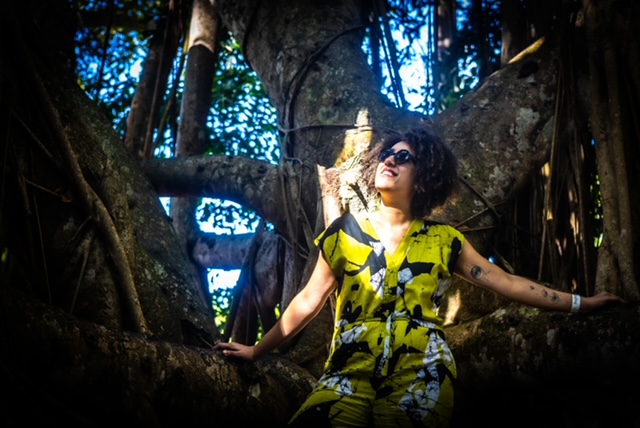By: Sahana Sriram, Associate Consultant and Client Services Manager.
Introduction:
In this post, we embark on a journey that brings together two crucial facets leading organizations: Diversity, Equity, and Inclusion (DEI) and Mental Health. At the intersection of these powerful narratives lies a profound exploration of resilience, authenticity, and healing, especially within the BIPOC (Black, Indigenous, and People of Color) communities.
I interviewed Marissa Moore, a psychotherapist from New York who owns a practice that primarily serves BIPOC communities. Marissa’s journey, both as a therapist and as a woman of color, offers a unique lens where cultural nuances, identity, and societal dynamics meet, influencing how individuals access, perceive, and seek support for their mental well-being.
Starting your journey as a therapist
Sahana: Hi Marissa! I’m truly grateful for your time and willingness to chat today. To kick things off, I’m genuinely thrilled to connect with you and dive into your journey, insights, and experiences, especially when it comes to the mental health of marginalized communities in America. Let’s jump right in. Could you start by introducing yourself and sharing a bit about what inspired you to establish Therapy Brooklyn?
Marissa: Hey, thanks for having me! I’m excited to be here and shed light on BIPOC mental health. I’m Marissa, a couples and individual therapist, and I’m the proud owner of Therapy Brooklyn. We are a collective of therapists of color dedicated to supporting the BIPOC community. My motivation for starting Therapy Brooklyn is a beautiful puzzle. I started out as an individual practitioner, and as my private practice grew, I noticed a surge in demand and a long wait list of clients. People of color were seeking therapy but struggling to find a clinician they could relate to or see themselves in. On my website, I shared bits of my personal journey as a black and biracial woman navigating therapy. That authenticity resonated with folks, but I couldn’t be the sole answer. I envisioned a space where individuals of color could access relatable therapists who truly understood their needs and experiences.
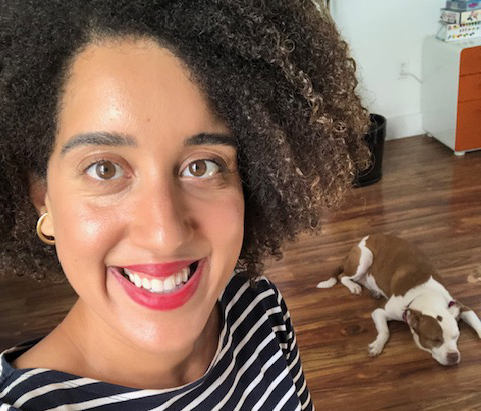
Identity and practice:
Sahana: That’s amazing! You mentioned being a Black and Biracial woman. How do these identities shape your practice?
Marissa: Our identities are complex narratives, and I actively honor each aspect. When describing myself as a black woman and biracial, there’s significance in the order of those words. It’s about celebrating and highlighting different facets of my cultural identity. It’s a way of celebrating and centering different facets of who I am and my cultural identity. I’m also light-skinned and of Cuban descent, which adds further layers to my identity. I’m mindful of the privilege that comes with my appearance, and this informs my interactions. I often question where I belong, which groups I’m part of, and which ones I represent. This diverse identity helps me empathize with my clients’ multifaceted experiences. My practice creates a safe space where we can openly discuss these aspects and explore how our identities intersect and diverge. It involves embracing, questioning, and celebrating these dynamics within therapy.
Barriers to access Mental Health in bipoc communities
Sahana: Your approach is deeply inclusive and thoughtful. I imagine your diverse identity also enables you to recognize barriers to accessing mental health care that affect BIPOC communities. Could you elaborate on these challenges?
Marissa: Absolutely. Navigating mental health care in BIPOC communities presents unique challenges. Accessible care is a primary concern, extending beyond finding therapists who share your identity. It’s also about finding therapists who can handle the weight of their own experiences and the system’s injustices. I started in a community mental health clinic, seeing numerous clients. Slowly, I’ve changed my approach to manage my own mental health needs along with addressing mental health concerns of my clients. Additionally, I’ve made it a priority to offer health insurance-based care and a sliding scale to ensure mental health equity and reduce financial barriers.
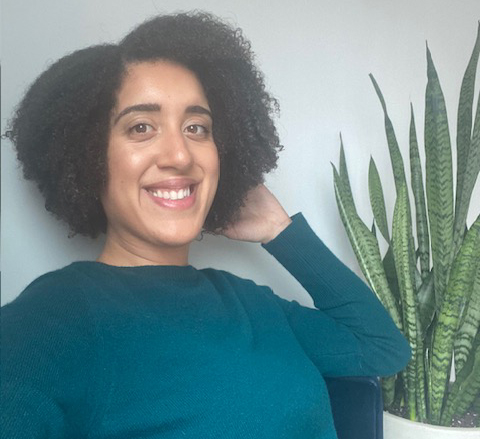
BIPOC approach to mental health services
Sahana: Your dedication to accessibility and to tailored care is truly commendable. I hadn’t paid attention to how limited capacity of mental health professionals within the BIPOC community contributes to health inequities.
Marissa: Indeed. That’s why I’m open with my clients not just about their diagnoses, but also about the world’s happenings. “You and I are swimming in the same water.” External events often affect both of us, and acknowledging this strengthens the therapeutic bond. I refuse to position myself as an outsider; I’m right there alongside my clients.
Sahana: Now, as someone who’s in the trenches, what are your thoughts on the cultural nuances that impact how people of color approach mental health support? Different cultures have diverse philosophies around healing and growth. How do you accommodate these varied perspectives, considering that traditional therapy models were developed by white heterosexual men?
Marissa: Culture plays a significant role in shaping one’s approach to mental health. I begin by acknowledging the uniqueness of each individual’s experience. I don’t use a one-size-fits-all approach. I’m genuinely curious about their experiences and how they perceive therapy, support, and mental health. It’s a dialogue between the client and me. I explore cultural differences in seeking help, considering modalities beyond talk therapy. Cultural competency entails respecting various ways of healing. For instance, movement can be therapeutic in some cultures. I also address power dynamics; clients might expect me to be the expert. Recognizing this, I work to create a partnership where both our voices matter. It’s about validating the clients’ voice while honoring their cultural differences.
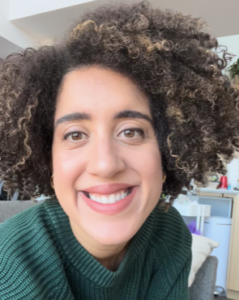
Socially determined circumstances inhibiting mental health in BIPOC communities
Sahana: In many ways, your work is about acknowledging the current reality that our clients operate within and return to and slowly exploring ways of shifting behaviors and environments that aren’t effective for the client. Apart from working towards building individual strengths and challenging ineffective interpersonal and intrapersonal ways of being, how do you talk about the socially determined circumstances that adversely impact minority health.
Marissa: I think it is important to name and acknowledge the impact of persistent systemic social inequities in the room. I often take a strengths-based approach and want my clients to honor and build their individual strengths but I also recognize the limitations of that approach. I’m aware that multiple institutional and systemic factors impact my clients’ lives and I want to talk about the contexts they operate within – healthcare, education, workplace. For example, someone might be focusing on their coping strategies such as deep breathing to regulate their emotions but face racial bias at work which can definitely worsen stress. So once we recognize external factors that contribute to mental health issues, we can begin discussing spaces and places where they feel safe, valued and seen.
The role of honesty in therapy for BIPOC communities
Sahana: What you’re pointing to is ‘honesty’. People of color especially have often lost hope because they have tried to navigate unequal and unjust systems with the belief that effort will lead to success. When they don’t succeed through effort, experiencing and processing failure is tough when multiple aspects are out of their control. For example, a lot of work visas are selected through a lottery process. If you hold onto the belief that the world should be fair and life should be just and you see that it isn’t, it’s heartbreaking. Honesty about racial disparities can be validating in those scenarios. What do you think?
Marissa: For sure! It’s about getting away from the phrase ‘ Pull yourself up with your bootstraps’. That isn’t realistically possible and it can be liberating for clients to recognize that because they no longer blame themselves and can also start to observe the context around them and think of navigating systems to achieve the results they want.
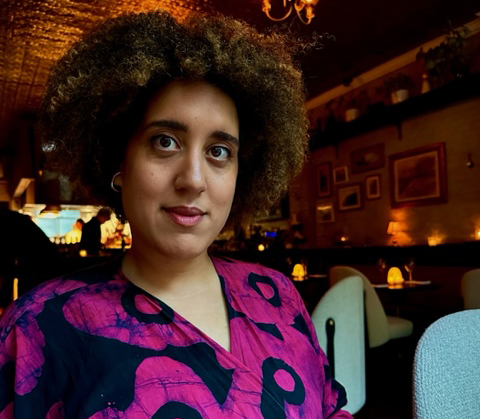
Shifting the Narratives around effort and burnout
Sahana: Yes! Some culturally ingrained phrases can lead to burnout and depression. For example, phrases like ‘suck it up’ and ‘wasting time is criminal’ are normalized within BIPOC communities. How do you address these narratives?
Marissa: There are so many! Stress is the first one that comes to my mind. Secondly, people of color experience a wide range of trauma in the US that includes daily microaggressions, consuming the news of racial atrocities or navigating work, education and housing as BIPOC communities. But often, they call it exhaustion, stress, anxiety and depression. It’s verbalized as stress and exhaustion but is symptomatic of fighting systems everyday.
Recommendations to therapists
Sahana: Thank you for sharing that. Given this context, what are some recommendations you have for therapists with people of color?
Marissa: Firstly, be aware of your identity and explore your lived experience and different parts of yourself. Secondly, be open to talk about these ideas in the therapy room instead of being a blank slate in the room. We have learned in school that we shouldn’t make ourselves visible but I would recommend exploring the possibilities with opening up about your identities and experiences that are relevant to treatment. Lastly, take care of yourself so you do not burnout!
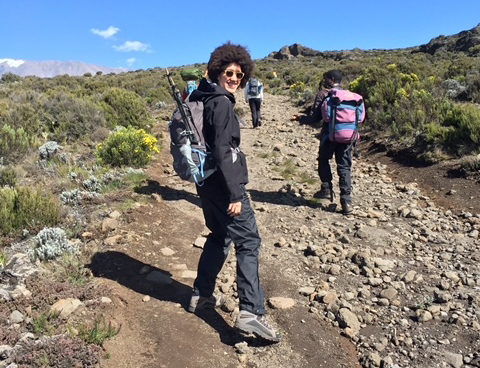
Sahana: You leaned into my next question. How do you take care of yourself?
Marissa: I do little things such as scheduling time for lunch. I take naps when I can and focus on movement to recover.
Sahana: Thank you so much Marissa for your insights. I’m left feeling inspired and hopeful.
Therapy Brooklyn has a team consisting of all people of color. You can check out their website here and email [email protected] to set up a free consultation.
We at Hyphens and Spaces can support you in caring for BIPOC communities. For more information, contact Hyphens and Spaces via our intake form here or send an email to [email protected].

